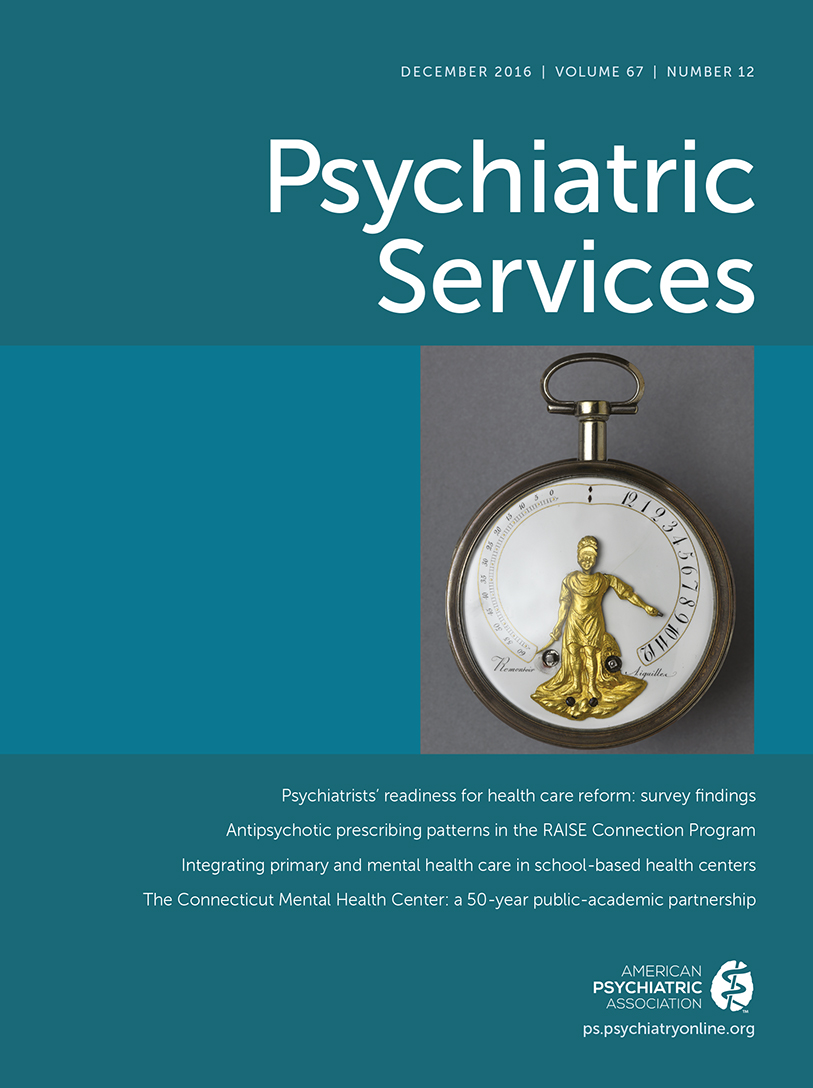Are Psychiatrists Ready for Health Care Reform? Findings From the Study of Psychiatric Practice Under Health Care Reform
Abstract
Objective:
This study sought to describe the extent to which psychiatrists, prior to insurance expansions under the Affordable Care Act (ACA), reported currently participating or being likely to participate in integrated services delivery models, to assume new roles, to accept new reimbursement structures, and to use electronic health records (EHRs).
Methods:
A cross-sectional probability survey of U.S. psychiatrists was fielded from September to December 2013. In total, 2,800 psychiatrists were randomly selected from the AMA Physician Masterfile, and 45% responded. Of these, 93% (N=1,099) reported treating patients, forming the sample.
Results:
Overall, 29% reported practicing in new ACA or integrated models, and 64% reported assuming at least one new role. Forty-two percent reported currently receiving a salary; other capitated and risk-based reimbursement was rarely used. Half (53%) reported current use of EHRs for clinical functions not limited to billing or practice management; only 21% reported participating in the Medicare or Medicaid EHR Incentive Program. Those who reported currently practicing or being very likely to practice in primary care or integrated treatment settings, to assume at least one ACA role, to receive a salary, or to use an EHR were younger and more racially-ethnically diverse and more likely to see Medicaid and public outpatient clinic patients
Conclusions:
Although substantial proportions of psychiatrists reported current practice in ACA services delivery models and ACA roles, the findings highlight opportunities for workforce development, training, and technical assistance to strengthen participation in these activities. The findings also underscore the need to prepare psychiatrists for merit-based payment reforms and use of EHRs.



